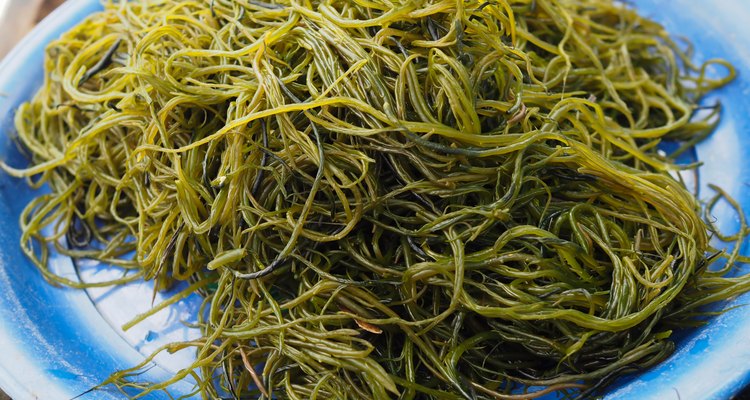
ieang/iStock/Getty Images
Spirulina is a type of algae that is blueish-green in color. It is a rich source of protein and a wide array of vitamins and minerals including vitamins B and E, beta-carotene, zinc, calcium, copper, iron, selenium and manganese. According to MedlinePlus, when free of contaminants, spirulina is possibly safe for most adults, but is likely unsafe for children. Talk with a doctor to determine if it is safe to include spirulina or spirulina supplements in your diet.
Calcium Content
Dried spirulina contains 120 mg calcium per 100 g serving. In comparison, raw spirulina contains far less calcium at only 12 mg per 100 g serving.
Nutrition Facts
Dried spirulina contains 290 calories, 57.47 g protein, 7.7 g fat and 23.9 g carbohydrates per 100 g serving. Raw spirulina contains far less calories at only 26 calories per 100 g serving. This is primarily due to the fact that over 90 percent of raw spirulina is made up of water and water contains no calories. Dried spirulina contains only 4 percent water per 100 g. Raw spirulina also contains 5.92 g protein, 0.39 g fat and 2.42 g carbohydrate.
Recommendations
The Office of Dietary Supplements of the National Institutes of Health recommends that adults consume a minimum of 1,000 mg calcium each day. Dried spirulina meets approximately 12 percent of your daily calcium needs, while raw spirulina meets only 1 percent.
Other Sources
Calcium is found naturally in many foods including milk, cheese, yogurt, sardines, broccoli, salmon and leafy green vegetables such as spinach and kale. Some commonly eaten foods are fortified with calcium to improve the calcium intake of the population. These foods include orange juice, soy milk, tofu and whole grain breads and cereals.
Related Articles

How Fast Does Cooked Spaghetti Squash ...
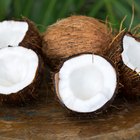
What Is the Nutrition in Coconuts & ...

What Foods Provide Calcium D-Glucarate?

How Long Do Shucked Oysters Stay Fresh?

Nutrition Information on Blueberries

Tea Tree Oil as a Natural Remedy for ...

Is It Better to Wash Your Face With Hot ...

How to Get a Hard Water Stain Out of ...

Calories of Tuna in Sunflower Oil
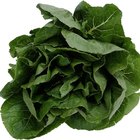
How to Dry Spinach

Calories in One-Half Cup of Cottage ...

How to Whiten Jeans

Calories in One Slice Provolone Cheese

Can I Substitute Dry Milk Powder for ...
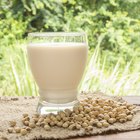
Fiber in Soybeans

What Are the Causes of Hair Shedding in ...

The Disadvantages of Silk

Rayon Spandex Care Instructions
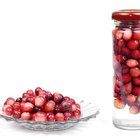
How to Make Cranberry Juice from Fresh ...

How to Cook Deer Brats
References
Writer Bio
Emily Creasy began writing professionally in 2010. As a registered and licensed dietitian her writing focuses on weight loss, disease-specific diets and diet-friendly cooking. She holds a Bachelor of Science in human nutrition, foods and exercise from Virginia Tech and a Master of Science in dietetics from James Madison University.
Photo Credits
ieang/iStock/Getty Images